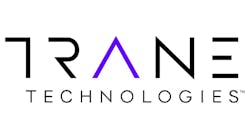Recruiting the best people for their organizations — technicians, dispatchers, customer service reps — is an ongoing issue for HVACR contractors. Finding the right path to bring the best to your business requires planning. Add a global pandemic to the mix, and it’s even more frustrating.
Christopher Hunter, director of customer relations at ServiceTitan, understands your pain. He founded Ardmore, Okla.-based Hunter Super Techs in 2006. He sold the business -- which by then had expanded to six locations -- in 2018, but not before starting a new venture, Go Time Success Group (Hurst, Tex.), with partner Ben Stark.
Hunter and Stark decided to collaborate and create an easy-to-understand book about successfully running a home services contracting firm. They hired Dave Rothacker to write it — and “It’s Go-Time” became a reality. Each chapter ends with a Go-Time Formula exercise that reinforces lessons learned. You can find the chapter on recruiting, excerpted HERE.
We sat down with Hunter to find out more about resolving recruiting challenges and how the COVID-19 pandemic has exacerbated those strategies.
Contracting Business: How important is company culture when talking about the recruiting process?
Chris Hunter: I believe it's the most key element in recruiting because your culture is a magnet — it's going to pull in and attract those who want to be around you. People want to work for winners; they want to join a team doing good things, treating people well and celebrating accomplishments. That is all wrapped up in a culture.
However, culture can repel those who aren't on the same path as you and maybe aren't a good fit for your team. My culture is not for everybody, and that's OK. You don’t need to reinvent or duplicate another company’s culture.
Clearly define your business, why you're working, where it is going, and what kinds of people you want to surround yourself with. Then it becomes your culture.
CB: What are the biggest problems residential HVACR contractors face when recruiting new techs?
CH: It's no secret that we face a massive technician shortage. I believe some contractors use the excuse as a crutch: "There aren't many techs. I can't get anyone to apply or I can't hire anybody who's any good." But so many contractors are playing defense when they should be playing offense.
Contractors need to have a strategy. What is the budget? How much time can we put into the effort? They need to stop complaining, change their mindset. Be proactive, not reactive.
CB: Anything else contractors need to keep in mind when they're putting a recruiting program together?
CH: Just like any other part of your business that you want to improve and develop, you need to have a system in place. Not many people are attracted to the HVACR business. So where are they going? How are they going to find out about us? A company's website ought to be directed at getting team members. People who move into your area looking for work are going to check your website out.
We do more than fix air conditioners and take people’s money.
Reviews are so important today. We don't buy anything or visit an establishment anymore unless we see it has positive reviews. I would not want to go work at a company with bad reviews. When you're active on social media appreciating your team, people are attracted to that.
I recently had the privilege of interviewing Mike Rowe, who is a big fan of trade workers. And he says, "We've got to have people tell their stories." He's right. We need to tell our stories to the next generation. They need to see that the trades are respectable, that their work matters.
CB: What do you suggest if in-person events are still limited this year because of the COVID-19 pandemic?
CH: Talking to school kids is still possible, just virtually. This year, I gave a virtual presentation to my son's school on why the trades make a good career. I tried to think about what I would want to hear if I was in their shoes. When it was done, he said, "Dad, everyone kept coming up to me saying yours was the best. They all really like the trades."
We have a huge opportunity with social media. Get out of your comfort zone and be more active on Facebook, Twitter, Instagram, YouTube, etc. Even if it's not good, be consistent in putting it out there and you'd be surprised what would happen.
A technician at another company may be curious about your operation. Post a live Facebook or a YouTube video of a behind-the-scenes look at your operation. How about a live, virtual job fair? Give a tour of the office, focus on your training facility or chronicle a day in a technician's life.
And while this is strange to say, the pandemic created a lot of opportunity for the trades. Being essential has never been more at the forefront of people's minds. So why not use our chance to shine? Appeal to people in industries hit hard by lockdowns.
Show them you've got a place for them and an opportunity that won't take the hiccups as they just experienced.
CB: In the recruiting chapter, you talk about developing a career path for technicians. Can you expand on that?
CH: I believe most people want to know their path, especially this younger generation. Am I doing well? What's it take to get to the next level? Providing a career path is a way forward, a vision of where we're going. It’s about putting in the work, hitting goals and achieving knowledge; it’s not a popularity contest. Otherwise, employees get stuck, and once they get stuck, they get bored, get disengaged and find something else.
It’s a way to keep them continually challenged and engaged, gives them something to measure against and provides a path forward. Dave even says this in the book: We do not have a technician shortage, we have a leadership shortage. If we develop more leaders, we will attract and keep more people.
[Terry, you can cut this question and run it online if this runs too long.]
CB: What tips do you have to keep technicians engaged and satisfied at their current companies?
CH: The biggest thing we can do as leaders is to have a system to encourage those who work for us to share their personal goals. At Hunter, whenever someone hired on, part of the process was creating a vision board. Some of it was personal, but others were thought questions focusing on professional goals: “What are some things I would like to achieve? Where do I want to go? What would I like to learn?”
Once employees understand what they want from their professional life and then connect the dots to the company's goals and vision, that's where the retention happens. They know that when the company wins, they can win.
Also, when an employee achieves an item on their list, celebrate those successes.
Lastly, management can design programs to make it very “sticky” to be at our businesses. If I paid a residual for every one of our club memberships, my technicians could have a nice check from their past successes. It would be very tough for anyone to walk away from that.
Kelly Faloon is a contributing writer to Contracting Business, Contractor and HPAC Engineering magazines. The former editor of Plumbing & Mechanical magazine, she has more than 20 years' experience in the plumbing and heating industry and B2B publishing. A native of Michigan's northern Lower Peninsula, Faloon is a journalism graduate of Michigan State University.









